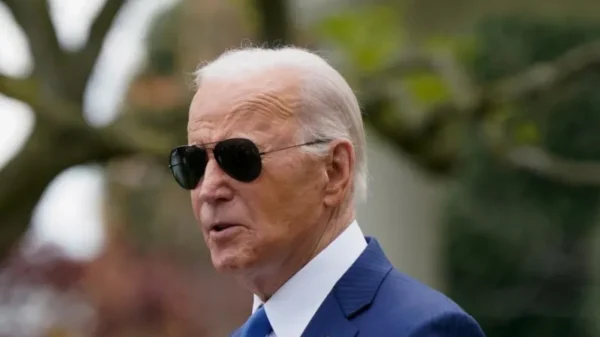In the aftermath of the Hamas attacks on Israel six months ago, the Gaza Strip continues to grapple with the devastating consequences of war. Despite efforts to alleviate suffering, the region remains mired in a cycle of violence, disease, and famine. In Israel, internal divisions deepen as the government struggles to fulfill its promise of total victory. Meanwhile, tensions with Iran and Hezbollah raise the specter of broader conflict in the Middle East.
The toll of the past six months is staggering. According to reports, over 33,000 Gazans, predominantly civilians, have lost their lives, with thousands more wounded. Among the casualties are over 13,800 Palestinian children, many of whom have suffered life-altering injuries. In Israel, more than 1,200 civilians have been killed in the attacks, with hundreds taken hostage by Hamas.
The ruins of Kibbutz Nir Oz, a community on the Israel-Gaza border, offer a poignant reminder of the human cost of conflict. Homes lay in ruin, abandoned gardens now overgrown with neglect. Survivors recount harrowing tales of loss and resilience, their lives forever changed by the events of October 7, 2023. For residents like Yamit Avital, the prospect of returning home remains fraught with uncertainty and trauma.
Beyond the physical destruction lies a humanitarian crisis of alarming proportions. Gaza teeters on the brink of famine, with reports of widespread food insecurity and malnutrition. The blockade imposed by Israel has exacerbated the situation, leaving hundreds of thousands of Palestinians without access to basic necessities. The recent deaths of aid workers have drawn international condemnation and renewed calls for humanitarian intervention.
Amidst mounting pressure, the United States has taken a more critical stance towards Israel’s conduct in the conflict. President Biden’s condemnation of the killings in Gaza marks a significant shift in American policy, signaling a willingness to hold Israel accountable for its actions. The Biden administration has also pushed for greater humanitarian access to Gaza, a move met with resistance from Israeli authorities.
The political landscape in Israel is equally fraught, with Prime Minister Benjamin Netanyahu facing intense scrutiny over his handling of the crisis. Calls for his resignation have grown louder, fueled by accusations of prioritizing personal gain over the nation’s interests. As protests rock the streets of Jerusalem, Netanyahu’s grip on power appears increasingly tenuous.
As the conflict enters its seventh month, the path to resolution remains elusive. Israel’s insistence on maintaining control over Gaza clashes with American efforts to broker a ceasefire and facilitate Palestinian autonomy. With tensions simmering on multiple fronts, the specter of all-out war looms large, casting a shadow of uncertainty over the region’s future.
In the face of adversity, the resilience of the Palestinian and Israeli people endures. While the road to peace may be long and arduous, hope remains that dialogue and diplomacy will ultimately prevail, paving the way for a brighter tomorrow in the troubled lands of Gaza and Israel.





















































Comment Template